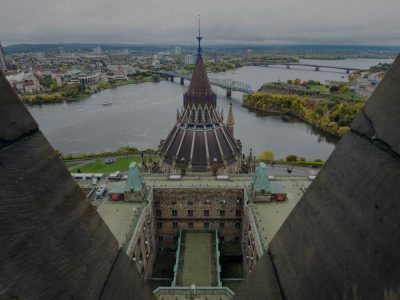Lead image by 001nights / iStock
By Ruolz Ariste
This article is republished from The Conversation under a Creative Commons licence. All photos provided by The Conversation from various sources.
Ruolz Ariste is an adjunct professor of public policy and administration at Carleton University.
Haiti’s Patriotic Congress for National Rescue, launched by the academic community and civil society organizations, recently held a nearly month-long period of consultations across Haiti and its diaspora over the worsening crisis in the Caribbean nation.
It concluded on June 27 with 25 proposals on three points: 19 on the security crisis and six on reforms to public governance and endless transitions.
While these three points are key for a national rescue and are interconnected, they don’t carry the same weight. Based on the number of proposals, the security crisis takes priority over governance reforms and endless power transitions.
As a public policy and administration expert, I believe governance reforms are crucial because Haiti’s insecurity, lawlessness and constant political transitions are rooted in poor governance and corruption.
Corruption at the core
Excessive corruption is the cancer that eats away at Haiti. It hinders private investment, slows the production of goods and services, and triggers social unrest, criminal activity and poverty. It’s the root cause of the Haitian crisis, not the symptom.
In his book The Great Escape: Health, Wealth, and the Origins of Inequality, British-American economist and Nobel laureate Angus Deaton argues that a well-functioning national government is what allows people to escape misery.
His views echo a study by researchers from the International Monetary Fund and the World Bank that found an increase in corruption significantly reduces the income growth of impoverished people.
This research clearly illustrates that it’s not poverty that breeds corruption, but rather the reverse. In other words, to truly tackle poverty, we must go to the source of the problem and tackle corruption.
I’ve made the same argument in my self-published book Contemporary Events Related to Equity and Inclusion: A focus on Blacks, the Haitian diaspora, and locals.
It’s clear, therefore, that most of the recommendations from the Patriotic Congress should focus on bad governance and corruption.
Up close and personal with Haitian corruption
Corruption is the norm in Haiti, not the exception. It is rooted in the country’s institutions and remains systemic. The US$2 billion Petro Caribe scandal is a major case in point.
Well-intended investors trying to do business in Haiti often face myriad corrupt officials. I have personal experience with this phenomenon.
I launched a company in Haiti, Biogaz pour une Solution Intégrée, with some well-meaning classmates and colleagues who specialize in the science of soil management and crop production.
When founding and presiding over the business, we’d hoped for political stability due to the election of President Jovenel Moïse in 2017.
Instead, we faced unscrupulous offers, even from a former university classmate who had become a high-ranking member of the government. Blatant corruption in the form of elected individuals or civil servants requesting substantial kickbacks was ubiquitous. The company did not survive this hostile environment.
The point I want to make here is that some people in Haiti exhibit corrupt behaviours without any discomfort or maybe even without realizing it.
Moïse, meantime, was assassinated four years later. Several suspects have been indicted in his murder, including his widow Martine, former acting prime minister Claude Joseph and former police chief Léon Charles.
Haiti’s painful descent
Three specific conditions are required to attract private investments in any country: political stability, good governance and anti-corruption measures. With bad governance and systemic corruption, political stability becomes elusive. This again emphasizes the importance of focusing on improved governance to vanquish systemic corruption and lift Haiti out of its current and longstanding misery.
As the first Black independent nation and one that once supported many other Caribbean and Latin American countries in their own quests for independence, it’s troubling that Haiti is experiencing such a dire situation.
The country is the poorest in the Western Hemisphere, with its GDP per capita declining by two per cent a year from 2014 to 2024.
The situation calls for urgent action. But it will not be easy.
National entities need to face facts about systemic corruption and stop playing the blame game. They must reform their institutions, accept accountability for managing public funds and eradicate corruption. International allies and organizations need to set up, not with boots on the ground, but with institutional reforms, mostly in the judiciary system.
Specifically, the mandate of the International Criminal Court should be extended to make substantial money theft and embezzlement a prosecutable international financial crime, one with the same rank as genocide.
Educating citizens about corruption
This will happen only with the mobilization of civil society to force changes in both national and international institutions. A massive educational campaign is also required among the Haitian population, from elementary schools all the way to university level, to educate and train citizens about what constitutes corruption and what are its disastrous impacts.
Taking steps to eradicate systemic corruption will also address the Haitian insecurity crisis and the endless power transitions because they’re so closely connected.
Haiti needs to build on its glorious history of resilience and resistance to tackle this challenging task, turn the tide and offer its citizens prosperous and peaceful lives and a much brighter future.
![]()
Monday, August 25, 2025 in The Conversation
Share: Twitter, Facebook



